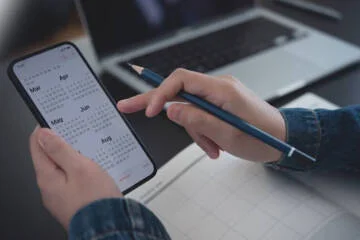How to Say “What Are You Doing?” in Chinese

In English, the phrase “What are you doing?” is a versatile tool in our conversational toolkit. It can be used to inquire about someone’s current activity, express disbelief, show anger, or even make casual conversation. The key to understanding the intended meaning often lies in the speaker’s tone.
When it comes to Chinese, however, the situation is quite different. If you’re learning Mandarin, it’s fascinating to discover that this language employs a rich variety of expressions to convey the same question. This diversity in phrasing enriches the language and reflects various cultural nuances.
So, understanding how to ask, “What are you doing?” in Mandarin isn’t just about learning a phrase; it’s about immersing yourself in a linguistic tradition that values context and subtlety.
So, let’s explore the many different ways to ask “What are you doing?” in Chinese. We’ll look at how these phrases are formed, their appropriate contexts, and the subtle nuances they carry. Whether you’re a beginner or looking to refine your Mandarin skills, understanding these expressions will significantly enhance your conversational abilities.
Remember, in Mandarin, it’s not just what you say, but how you say it that counts.
6 ways to say “what are you doing?” in Chinese
Mandarin Chinese, alongside Japanese, Korean, and Arabic, is generally regarded as one of the most challenging foreign languages for native English speakers. However, the good news is that it’s one of the most simple ones in terms of grammar.
Provided you know your pronouns, you only need to learn a few auxiliary verbs and phrases, then swap out the pronoun to say, “What is she doing?” “What are they doing?” or even “What am I doing?” in Chinese.
Easy, right? Let’s jump in.
1. 你正在做什么 – Nǐ zhèngzài zuò shénme

When learning Mandarin, one of the key phrases you’ll encounter is 你正在做什么 (Nǐ zhèngzài zuò shénme). This phrase is commonly taught in academic settings like schools or universities, and it’s the most formal way to ask “What are you doing?” in Chinese. It’s a fundamental expression for those looking to master conversational Mandarin.
The phrase 你正在做什么 is particularly interesting because of the use of 正在 (zhèngzài), an auxiliary verb that indicates an action is currently taking place. This is similar to the present continuous tense in English. For instance, if you ask someone in Mandarin, “你正在做什么?” (Nǐ zhèngzài zuò shénme? — What are you doing?), you are specifically asking about an action they are engaged in at that very moment.
To respond to this, a Mandarin speaker would use 正在 (zhèngzài) followed by the verb that describes their activity. For example, “我正在听音乐” (Wǒ zhèngzài tīng yīnyuè – I’m listening to music) illustrates how the structure is employed to convey ongoing actions.
Understanding and using this phrase correctly is a great step for learners who are navigating the complexities of Mandarin. It allows for clear communication about current actions and activities, a common topic in everyday conversations. This phrase isn’t just a linguistic structure; it’s a bridge to engaging more deeply with the Mandarin language and its unique way of expressing ongoing actions.
By mastering “你正在做什么?” and its responses, you’re not just learning how to ask “What are you doing?” in Mandarin. You’re also gaining insight into the rhythm and flow of everyday Chinese conversation.
Related Reading: “In” or “At” In Chinese – Chinese Preposition 在 zài
2. 你在做什么 – Nǐ zài zuò shénme
In conversational Mandarin, particularly in everyday interactions in China, the phrase 你在做什么 (Nǐ zài zuò shénme) is commonly used. This phrase is a more casual version of asking, “What are you doing?” in Chinese. It’s interesting to note that in this expression, the word 正 (zhèng) from 正在 (zhèngzài) is often dropped, simplifying the phrase while maintaining its meaning.
The difference between 正在 (zhèngzài) and 在 (zài) in these contexts is subtle but notable. While both can be used to indicate an ongoing action, 正在 (zhèngzài) adds emphasis to the immediacy or the current nature of the action. It’s like stressing the ‘now’ in the question, “What are you doing now?”. On the other hand, 在 (zài) can have a dual function. It not only indicates the ongoing nature of an action but also can refer to a location.
This dual functionality of 在 (zài) is particularly useful in Mandarin. For example, when someone asks, “你在哪里?” (Nǐ zài nǎlǐ? — Where are you?), they’re inquiring about your location. And when you respond with “我还在办公室。我在和公司总裁开会” (Wǒ hái zài bàngōngshì. Wǒ zài hé gōngsī zǒngcái kāihuì — I’m still at the office. I’m meeting with the company president), you’re using 在 (zài) to indicate both your location (at the office) and the ongoing action (meeting with the company president).
Learning to use 你在做什么 (Nǐ zài zuò shénme) effectively isn’t just about mastering a phrase; it’s about immersing yourself in the practical, everyday use of Mandarin. This phrase is a gateway to more natural, fluent conversations in Chinese, allowing learners to interact with native speakers in a more relaxed and authentic manner.
Related Reading: Debunked: Common Myths about Learning Chinese
3. 你在干什么 – Nǐ zài gàn shénme
The phrase 你在干什么 (Nǐ zài gàn shénme) is another common but slightly different way to ask “What are you doing?” in Chinese. The verb 干 (gàn) translates to “to do” or “to work,” offering a broader spectrum of meaning than 做 (zuò). While 干 (gàn) might not be as prevalent in formal educational materials, in everyday Mandarin conversations, phrases like 你在干什么 are heard as frequently as 你在做什么 (Nǐ zài zuò shénme).
An interesting aspect of 干 (gàn) is its slightly harsher tone compared to 做 (zuò). This nuance can significantly affect the context and perception of the question. For example, when someone asks, “小婉,你在干什么呢?” (Xiǎo Wǎn, nǐ zài gàn shénme ne? – Xiao Wan, what are you doing?), it carries a straightforward, casual inquiry.
However, in a different context, such as “莉莉,你在干什么?我们要迟到了。” (Lìlì, nǐ zài gàn shénme? Wǒmen yào chídàole. — Lily, what are you doing? We’re going to be late.), the phrase might convey a sense of urgency or even mild frustration.
Understanding the subtle differences between 你在干什么 and 你在做什么 is crucial for Mandarin learners. It not only involves grasping the basic vocabulary but also learning about the cultural and emotional nuances that these phrases carry. Knowing when to use 干 (gàn) instead of 做 (zuò) can help you communicate more accurately and effectively, making your Mandarin sound more natural and contextually appropriate.
4. 你在干嘛呢 – Nǐ zài gànmá ne

The phrase 你在干嘛呢 (Nǐ zài gànmá ne) serves as a colloquial and friendly way to ask “What are you doing?” in Chinese, especially when talking to close friends. This version of the question is particularly popular in informal settings and is a great example of conversational Mandarin in action.
The distinction in Mandarin tones and meaning when using 干嘛 (gànmá) is crucial in Mandarin. While 你在干嘛 (Nǐ zài gànmá) by itself is grammatically correct, it can come across as abrupt or even rude.
This is because 干嘛 (gànmá) carries a dual meaning in Chinese. On its own, it often translates to a more confrontational “Why on earth?” or “What do you think you are doing?” which can be seen in phrases like “你干嘛瞪着我” (Nǐ gànmá dèngzhe wǒ? — Why are you staring at me?) or “她干嘛穿着毛衣?外面超过三十度啊。” (Tā gànmá chuānzhe máoyī? Wàimiàn chāoguò sānshí dù a. — Why is she wearing a sweater? It’s over thirty degrees outside!).
However, adding the 呢 (ne) particle at the end of 你在干嘛 (Nǐ zài gànmá) softens the tone, making it more conversational and gentle. This slight modification changes the phrase from potentially confrontational to friendly and casual. So, when you ask, “你在干嘛呢?” (Nǐ zài gànmá ne? — What are you doing?), it becomes an informal and friendly inquiry, suitable for casual conversations with friends or acquaintances.
For instance, a response like “我在优酷上看视频” (Wǒ zài yōukù shàng kàn shìpín — I’m watching a video on Youku) is perfectly fitting in this context. This reflects the nuanced and context-sensitive nature of Mandarin. Understanding these subtleties is key for anyone learning Mandarin, especially for those aiming to use the language in everyday social interactions. It demonstrates the importance of not just learning words and phrases but also understanding their cultural and conversational contexts.
Related Reading: 120 Basic Chinese Words and Phrases to Help You Survive
5. 干嘛呢你 – Gànmá ne nǐ
The phrase 干嘛呢你 (Gànmá ne nǐ) is a common variation used to ask, “What are you doing?”. This expression is a more informal and relaxed way of phrasing the question, where the standard 在 (zài) is dropped, resulting in either 你干嘛呢 (Nǐ gànmá ne) or 干嘛呢你 (Gànmá ne nǐ). Among these, 干嘛呢你 is often perceived as more natural in everyday speech.
It’s important to note that this expression can sometimes carry a negative connotation, typically conveying irritation or anger. For example, in the phrase “干嘛呢你?又看我的手机!” (Kàn wǒ shǒujī gànmá ne nǐ? — What are you doing looking at my phone?), there’s an underlying tone of annoyance or accusation. This usage is similar to an indignant “How dare you look at my phone!” in English.
Despite its potential for negative implication the addition of 呢 (ne) in 干嘛呢 (gànmá ne) tends to soften the expression. This subtle nuance can make a significant difference in how the phrase is received. However, it’s crucial to remember that 干嘛 (gànmá) should be reserved for informal settings. Using it in more formal or unfamiliar contexts could lead to misunderstandings or be perceived as rude.
Understanding when and how to use phrases like 干嘛呢你 (Gànmá ne nǐ) is an essential part of mastering conversational Mandarin. This insight is invaluable for learners aiming to communicate effectively and authentically in Mandarin, particularly in casual or familiar settings.
6. 你干啥呢 – Nǐ gàn shá ne

In the everyday vernacular of Mandarin, particularly among younger speakers or in more relaxed settings, the phrase 你干啥呢 (Nǐ gàn shá ne) is a popular way to ask “What are you doing?”. The character 啥 (shá) in this expression is a colloquial alternative to the more formal 什么 (shénme), both meaning “what?”.
This informal version is a vivid example of how language evolves and adapts in different social contexts.
Using 你干啥呢 (Nǐ gàn shá ne) in conversation conveys a friendly and casual tone, making it a perfect fit for informal chats among friends or family. Although this phrase may not be commonly found in Mandarin textbooks, it’s a staple in daily conversations across China.
For example, when someone asks, “你们干啥呢?” (Nǐmen gàn shá ne? — What are you guys doing?), they’re engaging in a relaxed and informal inquiry. The response, “我们在看电视” (Wǒmen zài kàn diànshì — We’re watching TV), matches the casual nature of the question.
For learners of Mandarin, being familiar with phrases like 你干啥呢 (Nǐ gàn shá ne) is crucial for understanding and participating in everyday conversations. It’s a demonstration of the language’s flexibility and how it caters to different levels of formality. This phrase is particularly useful for those looking to sound more like a native speaker and less like a textbook when speaking Mandarin.
How to say “do you have any plans?” in Chinese
Understanding how to express concepts related to time and plans is an intriguing aspect of learning Mandarin, particularly because Chinese doesn’t use grammatical tense markers as many other languages do. Instead, Mandarin relies on markers of aspect and specific time words to convey when an action takes place or is planned to occur. This approach is fundamental in forming questions about future plans or activities.
For instance, when you want to ask, “Do you have any plans?” in Chinese, you don’t need to conjugate verbs as you would in languages like English or Spanish. Instead, you simply incorporate words that refer to a specific time to frame your question.
This method applies to a range of questions, such as “你明天有什么计划?” (Nǐ míngtiān yǒu shénme jìhuà? — What are you doing tomorrow?), “你下周会去那个派对吗?” (Nǐ xià zhōu huì qù nàgè pàiduì ma? — Are you going to the party next week?), or “你今天在做什么?” (Nǐ jīntiān zài zuò shénme? — What are you doing today?).
This aspect of the Mandarin language illustrates its efficiency and simplicity in expressing temporal concepts. By integrating specific time indicators into your sentences, you can effectively communicate about past, present, or future activities without the need to alter the verb form. This feature of Mandarin not only simplifies the process of learning verb tenses but also offers a unique perspective on how different languages handle the concept of time.
Related Reading: Using 在 in Chinese – Time and Space
1. 你有什么安排 – Nǐ yǒu shénme ānpái

In Mandarin, the phrase 你有什么安排 (Nǐ yǒu shénme ānpái) is a common way to ask about someone’s plans or schedule. The term 安排 (ānpái) translates to “schedule,” “plan,” or “arrangement,” making this phrase versatile for various contexts.
For instance, you might ask someone, “明天你有什么安排?” (Míngtiān nǐ yǒu shénme ānpái? — What are you doing tomorrow?), to inquire about their plans for the next day.
Answering this question in Mandarin is straightforward. Unlike some other queries where you might use 在 (zài) or 正在 (zhèngzài) to indicate ongoing action, here you simply state your plans. For example, “我明天去医院看望我奶奶” (Wǒ míngtiān qù yīyuàn kànwàng wǒ nǎinai —I’m going to visit my grandma in the hospital tomorrow) is a direct and clear response.
To turn the question into a yes/no format, you can add the particle 吗 (ma) at the end. It’s important to note that 吗 (ma) has a neutral tone and differs from 嘛 (má). This subtle difference is significant in Mandarin. So, “你周三有什么安排吗?” (Nǐ zhōusān yǒu shénme ānpái ma? — Do you have any plans for Wednesday?) is an example of how to structure a yes/no question regarding someone’s plans.
In Chinese culture, direct refusals to invitations are often considered impolite. So, if you need to decline an invitation, it’s courteous to provide a reason and suggest another time. This approach isn’t just about language proficiency but also about cultural sensitivity. For instance, if you’re unable to accept an invitation, you might say, “我那天很忙,我们能改天吗?” (Wǒ nà tiān hěn máng, wǒmen néng gǎi tiān ma? — I’m busy that day, can we do it another time?)
For those learning Mandarin, understanding how to navigate social invitations is just as important as mastering Chinese vocabulary and grammar. This knowledge not only enhances your linguistic skills but also helps you better engage with Chinese culture and social norms.
Practicing ways to ask for a rain check or politely decline an invitation is an essential part of becoming proficient in Mandarin and navigating social interactions smoothly.
Related Reading: Declining an Invitation: How to Say “Not This Time” In Chinese?
2. 你有什么打算 – Nǐ yǒu shénme dǎsuan
The phrase 你有什么打算 (Nǐ yǒu shénme dǎsuan) is a useful way to inquire about someone’s general plans or intentions. It’s slightly broader in its application compared to 你有什么安排 (Nǐ yǒu shénme ānpái), which tends to refer to more specific schedules or arrangements. 打算 (dǎsuan) encompasses a wider range of plans, whether they’re tentative, in the process of being made, or just in the idea phase.
For instance, asking “你今天晚上有什么打算?” (Nǐ jīntiān wǎnshàng yǒu shénme dǎsuan? — What are your plans for tonight?) is a great way to find out someone’s potential or intended activities for the evening. A typical response could be “我想我会呆在家里看电影” (Wǒ xiǎng wǒ huì dāi zài jiālǐ kàn diànyǐng — I guess I’ll stay at home and watch a movie), which indicates a casual, yet decided plan.
You can also frame this question as a yes/no query by adding 吗 (ma) at the end. For example, “你明年有什么打算吗?” (Nǐ míngnián yǒu shénme dǎsuan ma? — Do you have plans for next year?) can elicit responses about future intentions or aspirations, such as “是啊,我要去旅行” (Shì a, wǒ yào qù lǚxíng — Yes, I’m going to go traveling).
It’s important to note the pronunciation of 算 (suàn) in 打算 (dǎsuan). Although 算 is typically pronounced with a fourth tone (suàn), in the context of 打算, it’s often pronounced with a neutral tone. This subtlety in Chinese pronunciation underscores the nuances of Mandarin, where tone adjustments can change the meaning or nature of words.
For learners and speakers of Mandarin, understanding the differences and uses of phrases like 你有什么打算 and 你有什么安排 is crucial. It allows for more precise and appropriate communication, especially when discussing plans or schedules. These phrases aren’t just linguistic structures. They’re key tools for engaging in meaningful conversations about future activities or intentions, reflecting the richness and flexibility of the Mandarin language.
3. 你打算做什么 – Nǐ dǎsuan zuò shénme
The phrase 你打算做什么 (Nǐ dǎsuan zuò shénme) in Mandarin Chinese is a versatile way to ask someone about their plans or intentions, translating to “What do you plan to do?” or more informally as “What are you doing?” This phrase effectively combines 打算 (dǎsuan), which functions as both a noun and a verb, meaning “plan” or “to plan,” with 做 (zuò), meaning “to do.”
This construction allows for a broad range of inquiries about someone’s plans or activities. For example, asking “下午你打算做什么?” (Xiàwǔ nǐ dǎsuan zuò shénme? — What are you doing this afternoon?) is an open-ended question that invites details about the person’s plans for the afternoon. A possible response, “我有橄榄球训练” (Wǒ yǒu gǎnlǎnqiú xùnliàn — I have football practice), provides specific information about their scheduled activity.
The phrase 你打算做什么 is particularly useful because it can apply to both immediate and future plans. It’s a key question in Mandarin for initiating conversations about activities, whether they’re leisure pursuits, work-related tasks, or any other type of engagement. This phrase is an important tool for those learning Mandarin, especially for understanding and participating in everyday conversations.
For Mandarin learners, grasping the use of 你打算做什么 isn’t just about language acquisition; it’s also about cultural immersion, that famous open secret of language learning. Asking about someone’s plans is a common and polite way to show interest in their life and activities.
This phrase is a bridge to more engaging and meaningful interactions in Mandarin, reflecting the language’s emphasis on relationship-building and social connectivity.
Unlock the secrets of Mandarin: Your journey to fluency begins here
Now that you’ve mastered various ways to say “What are you doing?” in Mandarin, you’re well on your way to enriching your conversations with Chinese speakers. Whether it’s a casual chat with friends or a text message to a colleague, these phrases are your key to showing genuine interest in others’ activities and fostering meaningful connections. But why stop here?
Do you want to accelerate your Mandarin learning journey? Do you want to converse fluently and confidently in Chinese? The answer lies just a click away. Begin a transformative language journey with our FREE Mandarin Fluency Scorecard. This isn’t just another language tool; it’s your personalized guide to mastering Mandarin.
Our unique scorecard offers a comprehensive assessment of your current Chinese skill level. Within 60 seconds, we help you pinpoint the exact areas holding you back so you can focus on what really matters.
No matter your current level, we provide tailored advice to propel you forward. Then, you walk away with a customized report packed with practical tips and strategies.
Starting the journey is easy, fast, and cost-free. You’re not just answering a few questions; you’re stepping into a world of language possibilities. With our expert guidance, your dream of fluently speaking Mandarin is within reach.
Ready to transform your language skills? Complete the FREE Mandarin Fluency Scorecard now. Just 60 seconds stand between you and your personalized roadmap to fluency.
Remember, learning Mandarin is more than acquiring a skill. It’s about opening doors to new cultures, experiences, and friendships. You’ve already taken the first steps to learning key phrases. Now, let’s unlock your full potential together.








